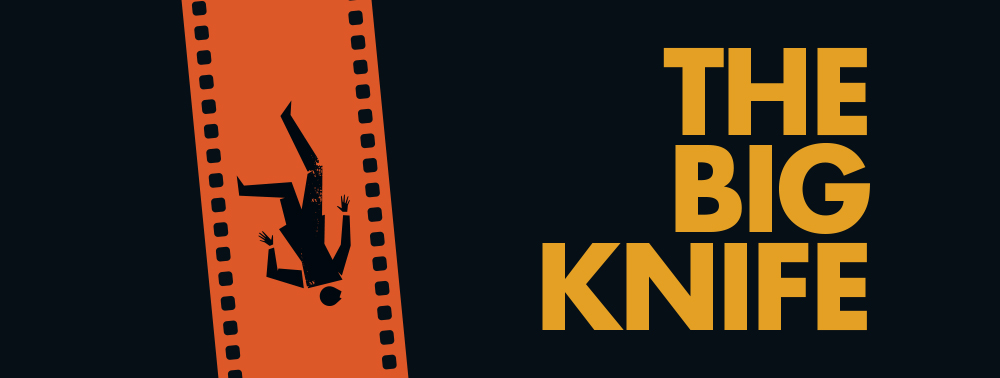 Charlie Castle is a big movie star with something to hide, but don’t you worry your pretty little head over that; the Hollywood studio he works for, will take care of everything. A darker, more sinister side of Hollywood’s Golden Age is revealed in the Roundabout Theatre Company’s new production of “The Big Knife” by Clifford Odets.
Charlie Castle is a big movie star with something to hide, but don’t you worry your pretty little head over that; the Hollywood studio he works for, will take care of everything. A darker, more sinister side of Hollywood’s Golden Age is revealed in the Roundabout Theatre Company’s new production of “The Big Knife” by Clifford Odets.
If you are a bit more mature in age, you may remember the 1955 movie with Jack Palance, Rod Steiger and Shelley Winters. You might also recall unfounded rumors involving Clark Gable and a fatal car crash that was covered up by the Hollywood studio he worked for. In those days, the studios guarded their property, and if you were making them lots of money, that’s exactly what they considered you, whether you liked it or not.
The show’s top-notch cast delivers some unforgettable performances, but does not give it the jolt it needs to truly captivate the audience. Perhaps the problem is a little too much old Hollywood presented here. You can get a little lost in the conversation at times. You may need to bring along your 1940s dictionary for translation. While the first half of the play takes a little longer than you would like to get it off the ground, the second act does not disappoint. Here is where the bulk of the action lies. It is high on drama, and succeeds in unsettling you with shock and dismay.
Complimentary to the time, are the set by John Lee Beatty and the costumes by Catherine Zuber, which are both fantastic in setting the tone and feel of the golden era. The actors are exceptional and really help bring the characters to life. The cast, made up of Bobby Cannavale, Marin Ireland, Joey Slotnick, and Richard Kind, to name a few, is worth the price of admission alone. They help to resurrect old Hollywood and make you feel like you are a part of it. It would not be surprising if Tonys are in this cast’s future for each performance.
Successful Hollywood actor, Charlie Castle, has one thing standing in the way of his happiness, and that’s him. Like many actors of his time, impropriety plagued him, however, no one swoops in to cover up a scandal faster than those powerful studio executives. The problem is, once they clean up your mess, they own you. This was Castle’s problem, only his mess was bigger than most. It was not some tawdry affair that needed to be covered up, it was a homicide- a terrible unforeseen accident that left two witnesses whom he now depended upon to keep his secret.
When the show opens, Charlie is hounded by gossip columnist Patty Benedict about the status of his marriage. Though they are separated and on the verge of divorce, his wife Marion helps keep up the charade of a happy and healthy marriage. Charlie wants desperately to be with her, although she is now involved with his friend and writer, Hank Teagle. Still in love with Charlie, Marion wants their simple life back, which she feels they could have if Charlie refuses to sign his new studio contract. He tries hard to accomplish this, but is no match for Marcus Hoff, his powerful studio boss. Lucky for Hoff, he has Charlie’s secret to hold over his head.
Adding to Charlie’s troubles is the bosomy blonde, and very flirtatious wife of his friend Buddy Bliss, who took the blame for his accident. And let us not forget, Dixie Evans, the young actress trying to break out in movies, who is threatening to reveal what she knows about the crash. As things start to spiral out of control, there are only a few options left for everyone involved. As Humphrey Bogart once said, “Things are never so bad, they can’t be made worse.” Hoff and his assistant, Smiley Coy, devise a sinister plan to preserve their most valuable commodity, Charlie.
As everyone will learn, there is always a price to pay when you bargain with the devil.
With a lackluster array of shows lately on and off-Broadway, “The Big Knife” is certainly one of the better plays out there. Aside from the show’s slow beginning, and some misunderstood 1940’s lingo, it does have an interesting plot line and does eventually satisfy in the end.

Leave a Reply